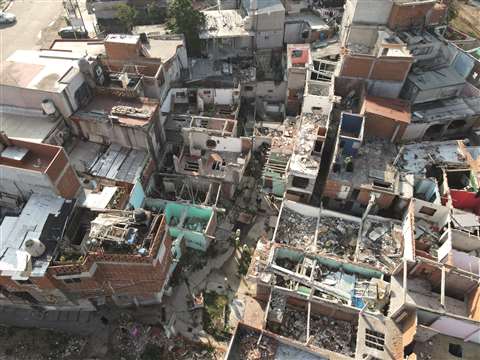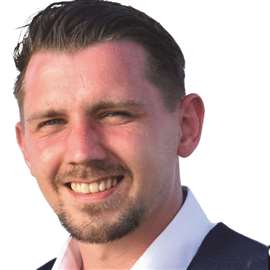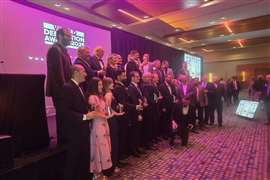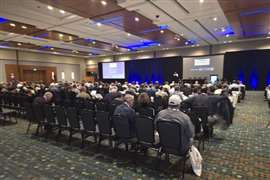Grupo Mitre’s award-winning recycling project
14 December 2022
Grupo Mitre’s winning entry in the Recycling and Environmental category of the 2022 World Demolition Awards shows the even large-scale projects in apparently unpromising situations can pay off – if you get the neighbours on side.
The Rodrigo Bueno shanty town in Buenos Aires is located on the shore of the River Plate, an estuary of great economic and social importance for both Argentina and Uruguay.
 The Rodrigo Bueno shanty town in Buenos Aires was a challenge in both technical and environmental terms. (Photo: Grupo Mitre)
The Rodrigo Bueno shanty town in Buenos Aires was a challenge in both technical and environmental terms. (Photo: Grupo Mitre)
Their respective capitals, as well as some of their most important cities and ports, are located on its shores.
It is made up of 2,665 people, comprising 996 families in 563 households. With this information, together with the client, Grupo Mitre elaborated a project of urbanisation and social, cultural and environmental integration.
The project concerned more than 300 homes, the provision of basic infrastructure, recreation spaces, as well as the opening of streets, the improvement of existing homes and the intervention in public spaces.
Once the materials with commercial value have been removed to be reinserted in the market from their sale, the machines come in to demolish the remaining structure.
The metals are first separated, to be treated by a scrapyard. Then, the screening process is carried out where the concrete and rubble are classified according to their size, to continue their way to the crushing process where a high quality ecological aggregate is obtained.
Thanks to what the company describes as its “active investment policy in cutting-edge technology”, it has incorporated aggregate crushers that allow it to process materials on site that it then reintroduces into the construction production cycle.
The role of the circular economy in the production cycle
In 2021 alone, almost 270,000 t of different materials have been reinserted into the production cycle, extending their useful life, while in Rodrigo Bueno nearly 900 t was recovered.
These recovered materials replace new products that require the extraction of virgin natural resources, taking care of the environment of the communities surrounding these sites. The carbon footprint generated was 4.21 t of CO2, which is equivalent to two trees.
Residents of the shanty town were invited to participate in the project, which gave them a formal job with development and a comprehensive training programme.
Although all urban demolition are highly complex, the one developed in Rodrigo Bueno presented a greater demand, due to the culture of the urban fabric. The project was carried out considering two critical points.
Firstly, technical aspects related to the structural conditions of the houses to be demolished and adjoining houses, since they were built leaning on one another, using adjoining walls as their own, or neighbouring beams as support for new structures.
This led to great difficulty when demolishing, since it was impossible to analyse the demolition method in advance.
Therefore, to carry this project forward, shoring and other measures had to be carried out to ensure the safety of the collaborators and the neighbours of the adjoining houses, who still inhabited them.
The second consideration was environmental aspects. These included the great challenge involved in intervening in an overcrowded shanty town with an intense movement of pedestrians at all times.
In addition, the site was 2 m (6 ft) from a canal that flows into the River Plate and a nature reserve.
Grupo Mitre focused on raising awareness, that it was essential to prevent the contamination of the canal, since it supplies water to a wetland system that provides shelter and food to more than 300 species.
The project was carried out successfully due to the level of empathy and communication commitment of the work team, which managed to unblock all kinds of conflict to advance in the project.
Dialogue with the neighbours was essential and always being willing to work together to resolve any unforeseen events that may arise.
- Article first published in the November-December 2022 issue of Demolition & Recycling International
CONNECT WITH THE TEAM









